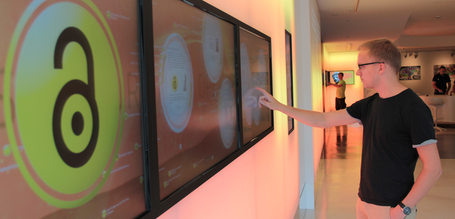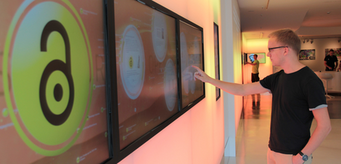Momentum for free online access to research findings
Renowned cultural institutions join the signatories of the Berlin Declaration on Open Access. The number of supporters will exceed 460 by the anniversary conference.
Ten years after publication of the Berlin Declaration on Open Access to Knowledge in the Sciences and Humanities, the commitment, which was initiated by the Max-Planck-Gesellschaft, has garnered broad international support. The number of signatories is set to rise further prior to the imminent anniversary conference in Berlin - and will include the Holocaust Memorial Yad Vashem and the Prussian Cultural Heritage Foundation (SPK).

The Prussian Cultural Heritage Foundation intends to sign the Berlin Declaration along with the German Archaeological Institute, the German Federal Archives, the Prussian Palaces and Gardens Foundation Berlin-Brandenburg and the Jewish Museum Berlin, as the various institutions announced on Wednesday. Initially just 19, the signatories of the Declaration will now exceed 460, including universities, research organizations, academies, libraries and cultural institutions from around the world, united in the common goal of ensuring that scientific knowledge and cultural heritage may be freely accessed on the Internet and used without hindrance. “This is an impressive development. And yet, open access is still not as well established as we would wish for the sake of knowledge sharing. One decade on, it is important to discuss what strategies are needed for the next ten years”, says Max Planck President Peter Gruss, referring to the Berlin Declaration’s anniversary conference, which will be held at the Berlin-Brandenburg Academy of Sciences and Humanities on 19 and 20 November.
"About ten percent of the total scientific literature are now being published in open access journals, and the trend is strongly increasing. In the atmospheric and Earth sciences we could not only improve the access to information, but we could also enhance quality assurance and stimulate the scientific discourse through open access. I am convinced that open access is the future in scientific publishing and will significantly support progress in science and society," says Ulrich Pöschl, director at the Max Planck Institute for Chemistry in Mainz. In 2001 he founded the internationally renowned journal "Atmospheric Chemistry and Physics (ACP)" as the first scientific journal with public peer review and interactive discussion. The journal and its 14 sister-journals published by the European Geosciences Union (EGU) is one of the most successful examples of the benefits of open access, about which Pöschl will also report at the conference.
From the outset, the Max-Planck-Gesellschaft has been a co-organizer of this annual international conference, which has become established as a global forum of the open access movement. Having been held at venues around the world, it now returns to its point of origin, Berlin. More than 200 participants from 40 countries have registered, and speakers will include open access practitioners such as Cameron Neylon, Public Library of Science (PLOS), politicians such as British Minister for Science David Willetts, and the Vice President of the EU Commission, Neelie Kroes. Leading representatives of research institutions, academies and libraries around the world will also be present. “We must continue to strengthen open access, because research thrives on exchanging the best ideas: The more comprehensive and immediate that becomes, and the freer the options for using the results, the more effectively academics and scientists can work”, states Gruss, pointing out that ultimately, research will be more effective in serving the common good.
Open access events for a broad public
Berlin will host additional open access events as part of the conference, including one at the Max Planck Science Gallery at Gendarmenmarkt. Admission to this multimedia exhibition on open access is free. There are also two evening events, the first on 18 November with Jens Vigen, head of the research library at CERN, and Richard E. Luce, Dean of Libraries at the University of Oklahoma, who will discuss the opportunities and challenges open access poses for libraries. The guest at the event on 19 November is Jack Andraka, a 16-year-old student from the US, who will speak about how open access enabled him to develop his new procedure for diagnosing pancreatic cancer. This pathbreaking procedure earned him the 2012 Gordon E. Moore Award at the Intel International Science and Engineering Fair, the largest scientific research event in the world. He was also an honorary guest of the US President at his State of the Nation speech in Congress in February 2013.
